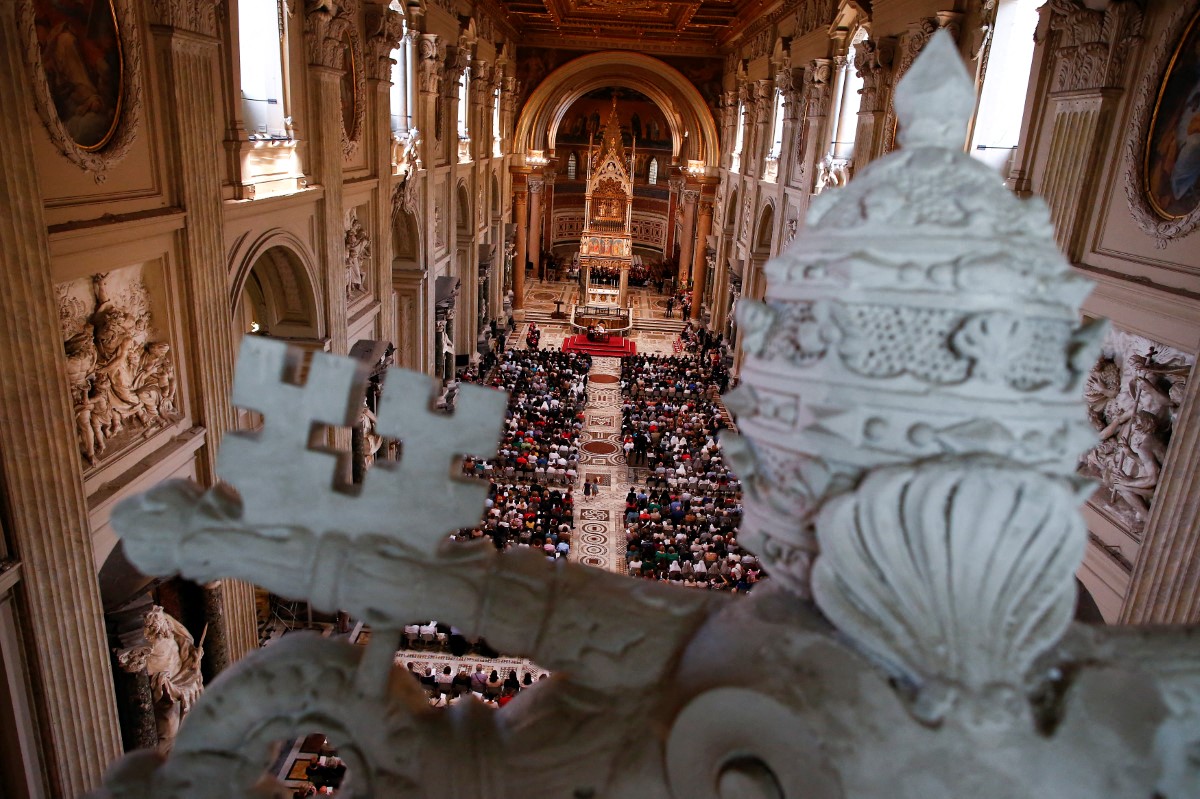When I was in Rome last year, we spent some time at the St. John Lateran Basilica. What caught my attention was a monument of a group of men, St. Francis of Assisi and his men, beholding the basilica from a distance. Why are they here, people ask?
The Basilica of St. John Lateran was the center of the Catholic world at the time of St. Francis of Assisi. St. Peter’s Basilica was only completed in 1605, almost 400 years after St. Francis’ death in 1226.
It was here that the young Francis and his first followers met Pope Innocent III, to request for the approval of “The Rule” of their religious life.
After Pope Innocent met Francis and his men, “the pope had a dream in which he saw the great Lateran Basilica crumbling in on itself.
Just as it was about to fall, the pope saw a man in peasant clothes take on the weight of the falling church, hold it up with his shoulders, and straighten it up again.”
In front of the basilica today, we can see statues of men, one of them St. Francis, beholding the great building.
At a certain angle from the back of the statues, you can see that the statue of Francis is holding the church in his hands.
St. Bonaventure told of this story about St. Francis of Assisi earlier in his life. One day, Francis was walking by the country church of San Damiano and went inside to pray.
“Kneeling before an image of the Crucified,” Bonaventure writes, “Francis heard with his bodily ears a voice coming from the cross, telling him three times: ‘Francis, go and repair my house which, as you see, is falling into ruin.”
At first, Francis took it literally so he sold everything so that he could raise funds, and begged for bricks, in order to repair the rundown church at San Damiano.
But the Church the Lord was talking about is not the building but the “body of Christ” — the lepers, the sick, the vulnerable — the Church of the poor.
The call to incarnate the “Church of the Poor” is a constant rallying vision of any movement for church reform—from the words of early Church Fathers to St. Francis of Assisi and the mendicants, from the reformation to the Pact of the Catacombs and liberation theologies.
In the vision of St. Francis, however, the Church of the Poor included animals and flowers, sun and moon, and the rest of creation.
Our “common home” is being destroyed and is falling apart, as Laudato Si rightly tells us. And as we hear the “cry of the earth”, we also hear the “cry of the poor” who are the first victims of our neglect and aggression.
Today, on his feast day, the same Church begins its Synod on Synodality. The church is in crisis. The world our common home, also part of St. Francis’ church, is crumbling.
May the spirit of St. Francis who holds the Church in his hands, who literally followed God’s voice, guide them as they follow the same inspiration from God: “Go, repair my house.”
Happy feast day to my friends at the Franciscan family.
Father Daniel Franklin Pilario, C.M., is a theologian, professor, and pastor of an urban poor community on the outskirts of the Philippine capital. He is also Vincentian Chair for Social Justice at St. John’s University in New York. The opinions and views expressed in this article are those of the authors. They do not purport to reflect the opinions or views of LiCAS News or its publishers.







